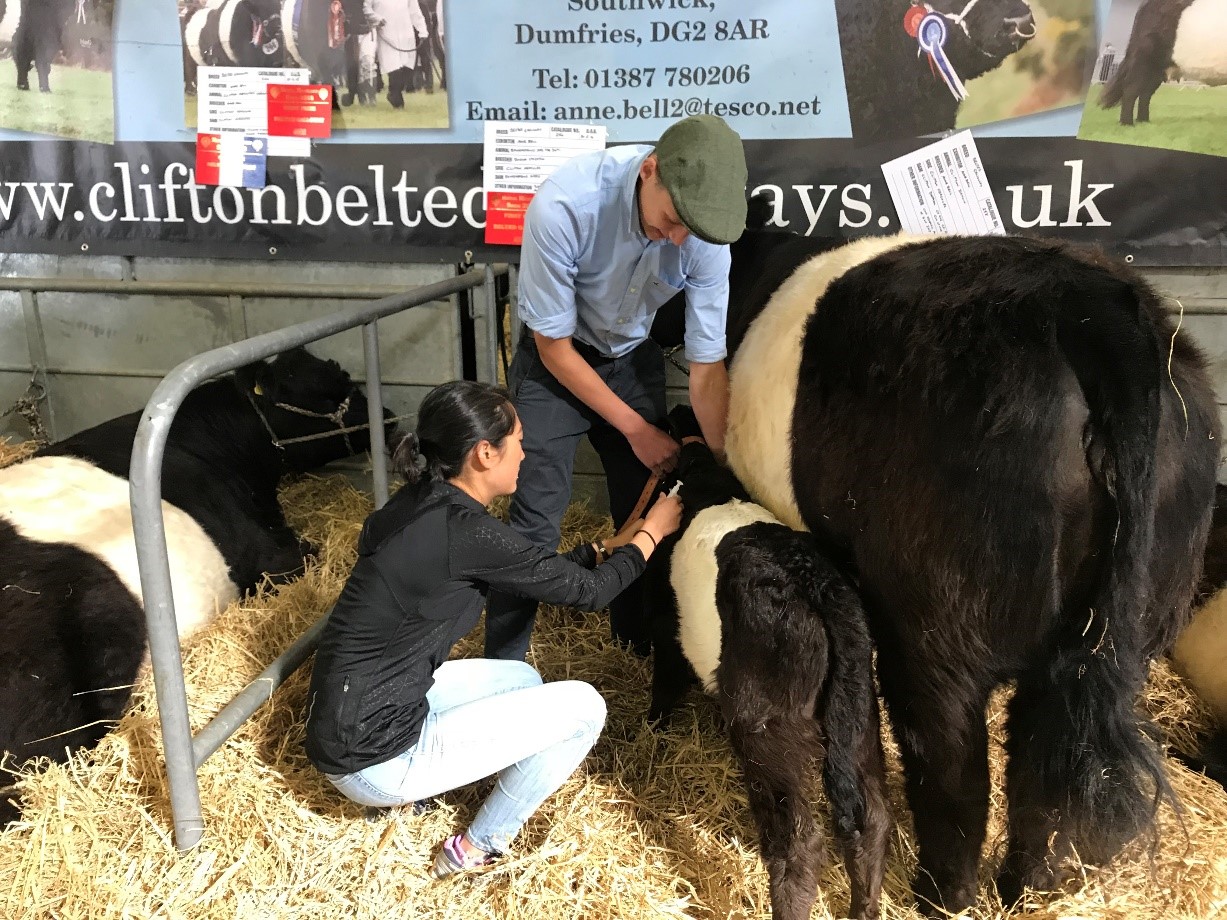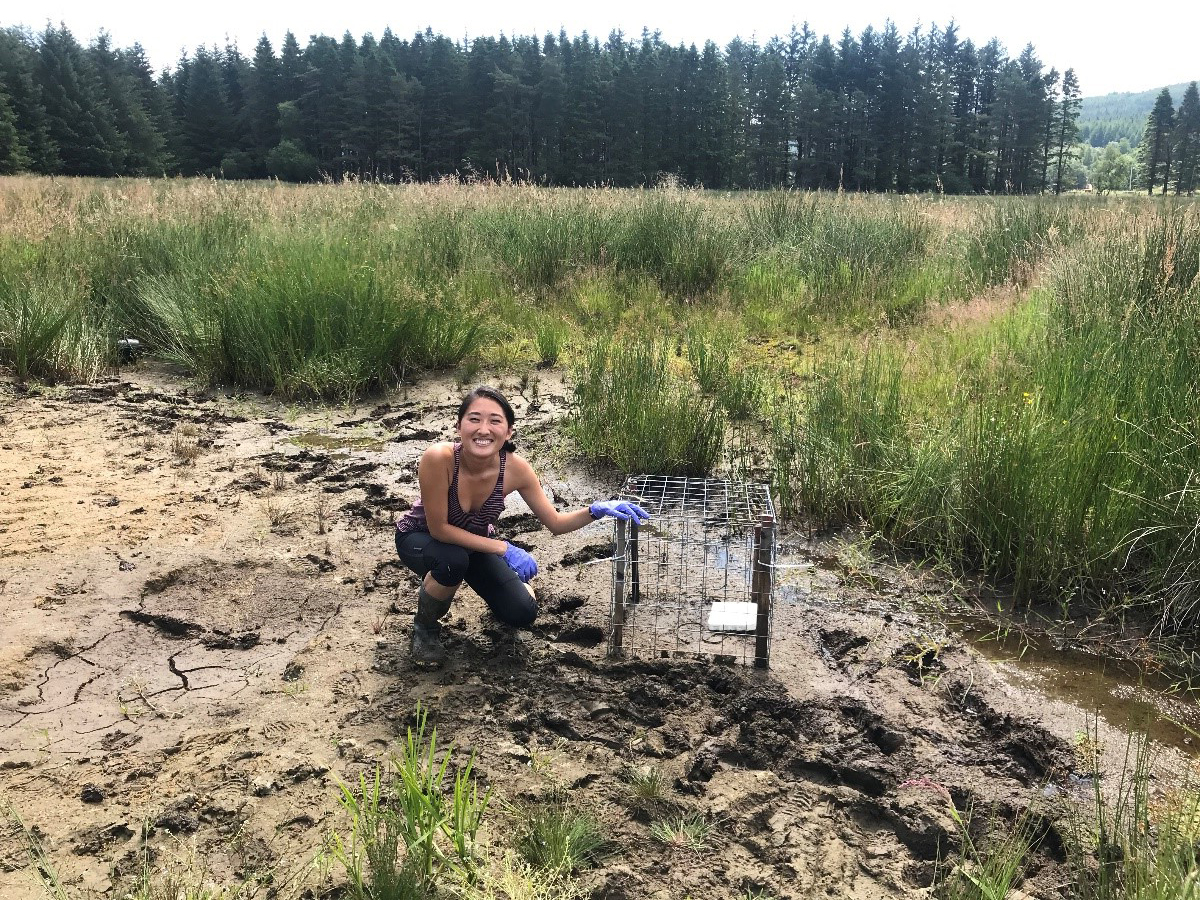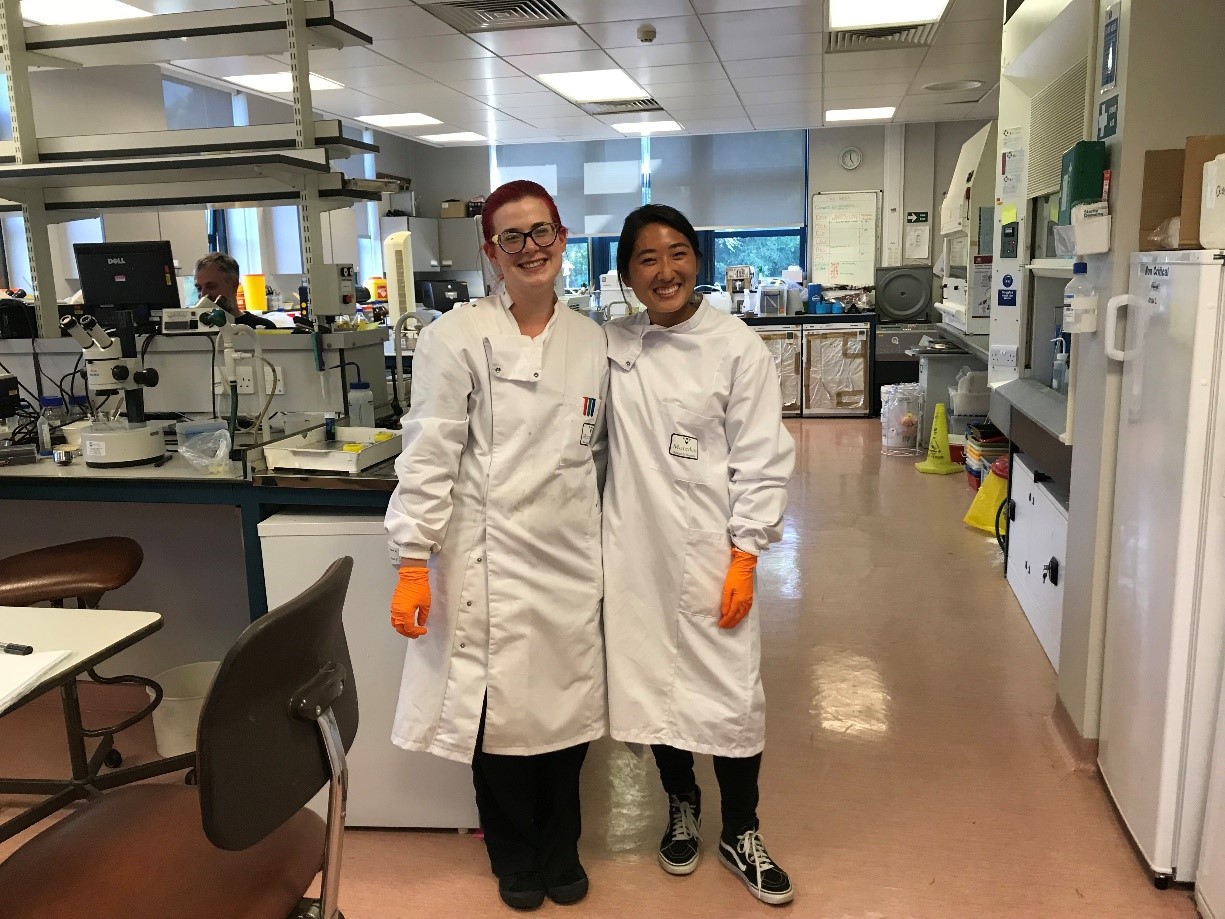Cece Zhu
Cece Zhu - Parasitology of Sheep and Cattle Flukes in Scotland
Scotland is an enchanting place full of history, gorgeous scenery, wonderful people, and of course, an abundance of sheep. With an estimated more than 6.56 million sheep, sheep parasitology is an area of major economic and animal welfare concern. Spending time at the University of Edinburgh (Dick) School of Veterinary Studies and the Moredun Institute this summer, I was able to get a taste of parasitology research and farm animal veterinary medicine in the beautiful setting of Edinburgh, Scotland. Together with Dr. Neil Sargison, a fluke parasitologist of the University of Edinburgh, and Dr. Patricia Conrad, protozoologist at UC Davis, we were able to come up with a three-week experience that encapsulated both the research and clinical experience I sought after.
Flukes are trematode parasites that cause disease in ruminants and humans worldwide. The fluke requires an intermediate host, the aquatic snail, for completion of its life cycle. This snail thrives in wet, cool habitats exactly like that of the United Kingdom’s. Add on the increasing flukicide resistance, fluke infestation is an emerging disease that causes major production losses, especially in Scotland. The objective of my time in Scotland was to identify the infective fluke stages and presence of fluke at an Argyll (central Scotland) farm location, as well as determining what kind of flukes (rumen and/or liver flukes) are infesting snails at another farm in Galloway (Southwest Scotland). This was followed by molecular work speciating snails and determining their infection of the liver and/or rumen fluke, as well as determining parasite loads of collected fecal samples at the Moredun Institute in Edinburgh.
The second half of the trip was spent working with the Farm Animal Practice of the University of Edinburgh to get clinical exposure. I worked with final year students in examining, diagnosing, and coming up with a treatment plan for livestock species. I also got the chance to go on farm calls, where I learned tremendous amounts of livestock medicine from both the veterinarian and farmers themselves. Many of the farmers have raised livestock for generations, and it was invaluable to be at the farms firsthand and speak to farmers about their experiences. I also had the opportunity to work with the attending veterinarians at Scotland’s biggest livestock show: the Royal Highland Show. There, I learned about the particular importance of infectious disease control and treatment. It was also an amazing opportunity to see the many heritage breeds of Scottish livestock up close, i.e. Highland cattle!
The three and half weeks I spend in Scotland was both instrumental in gaining clinical and parasitology research experience. I hope to work in the United Kingdom after graduation, so this was a tremendous opportunity to get a sneak preview. I not only gained so much veterinary experience, but also met so many amazing mentors, colleagues, and now friends. With the support of the Office of Global Programs and the University of Edinburgh, I’ve grown immensely as a future veterinarian as well as an individual in an increasingly diverse world.



